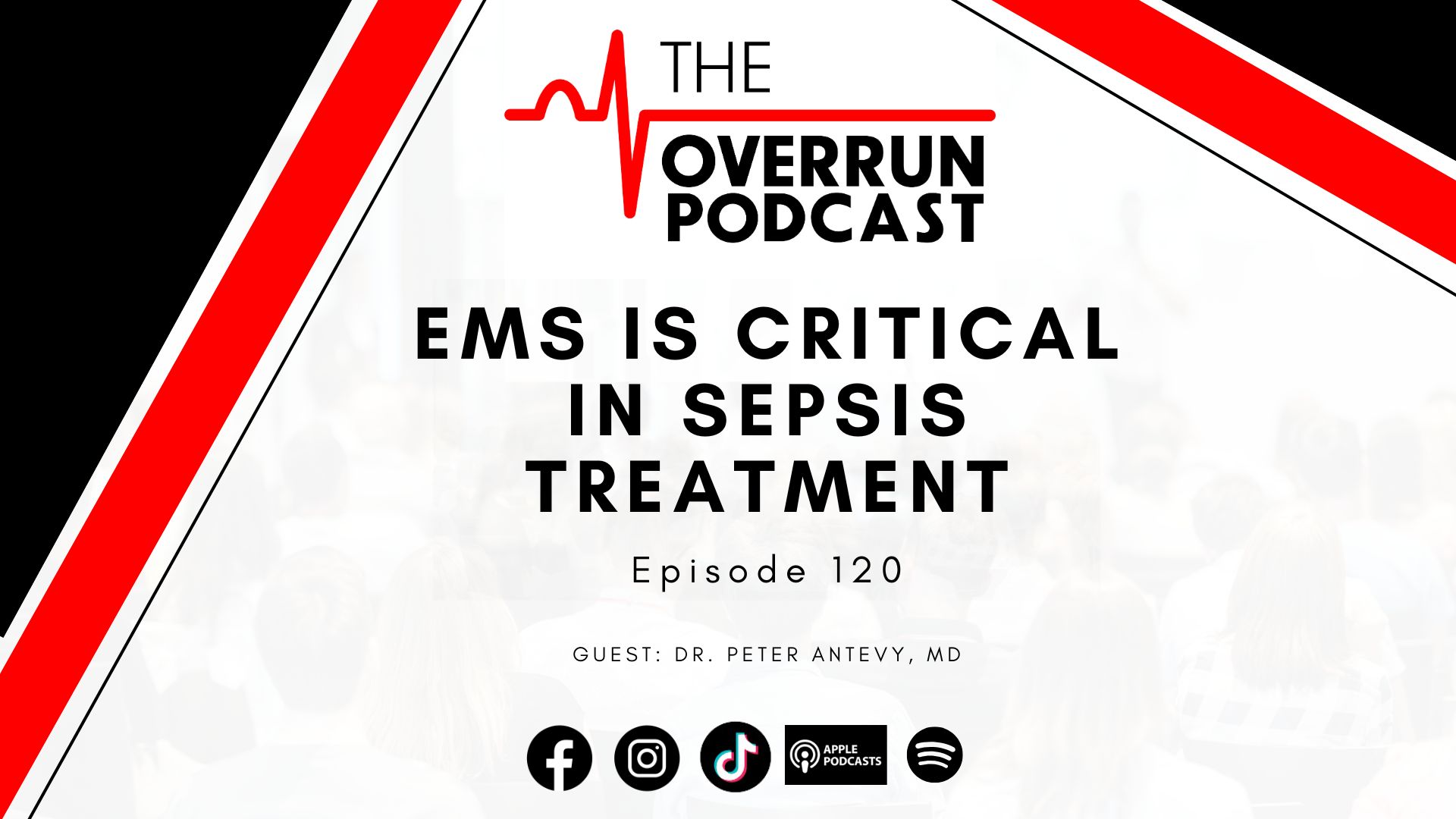Episode 120: EMS is Critical in Sepsis Treatment with Dr. Peter Antevy

Summary
In this episode, Dr. Peter Antevy discusses the critical role of EMS in the early treatment of sepsis, challenging the traditional view that sepsis is solely a hospital issue. He emphasizes the importance of data-driven approaches, early intervention, and the need for EMS to adopt effective treatment protocols. The conversation highlights the potential for EMS to significantly impact patient outcomes and reduce hospital burdens by providing timely care in the field. In this conversation, Peter Antevy discusses the innovative treatment of sepsis using spray-dried plasma, emphasizing its potential to improve patient outcomes. The dialogue explores the importance of data collection in recognizing and treating sepsis, the challenges faced in implementing evidence-based practices in EMS, and the need for transparency in healthcare data. Antevy highlights the role of clinicians in bridging the gap between research and practice, advocating for progressive protocols in EMS, and the necessity of adapting to the evolving landscape of healthcare.
Takeaways
Sepsis is often misunderstood as a hospital-only issue.
EMS can and should be involved in sepsis treatment.
Data is crucial for demonstrating the effectiveness of EMS interventions.
Early treatment of sepsis can drastically improve patient outcomes.
Protocols for sepsis management in EMS are essential.
The healthcare system needs to recognize the value of EMS.
Fluid resuscitation and antibiotics are critical in the field.
The role of EMS can alleviate pressure on emergency departments.
Understanding the business side of healthcare is important for EMS.
Future advancements in EMS will include more comprehensive treatment options. Spray-dried plasma could revolutionize sepsis treatment.
Data collection is crucial for recognizing and treating sepsis.
There is a gap between clinical practice and research.
RCTs are essential for validating new treatments.
High-performance CPR is a cost-effective improvement.
EMS must adapt to changes in healthcare delivery.
Data transparency can drive improvements in EMS.
Innovative treatments require rigorous research and validation.
Small agencies can implement progressive protocols without high costs.
The future of EMS lies in proactive patient care beyond 911 calls.
Chapters
00:00 Introduction to Sepsis and EMS
03:11 The Role of EMS in Sepsis Treatment
05:47 Data-Driven Approaches to Sepsis
09:05 The Importance of Early Intervention
12:00 Protocols and Practices in Sepsis Management
14:54 The Future of EMS in Sepsis Care
26:29 Innovations in Plasma Treatment for Sepsis
28:08 The Importance of Data in Recognizing and Treating Sepsis
30:21 Bridging Clinical Practice and Research
33:20 The Future of EMS Research and Data Collection
39:06 Challenges in Implementing Evidence-Based Practices
43:18 Navigating Resources in EMS for Progressive Protocols
46:55 The Need for Data Transparency in EMS
Podcast: Play in new window | Download